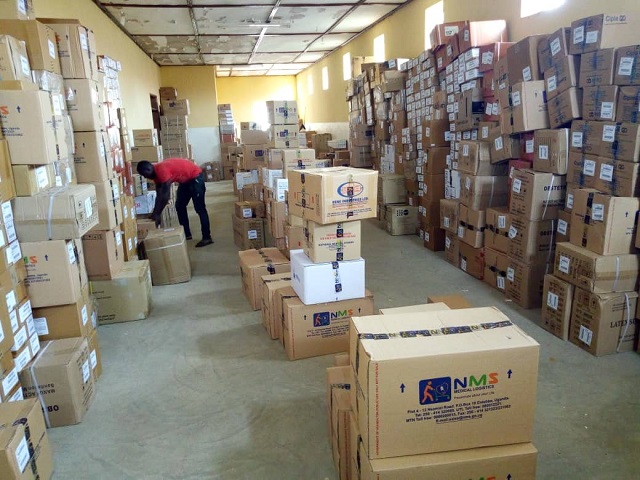
Kampala, Uganda | THE INDEPENDENT | The National Medical Stores (NMS) will in July commission a new computer system dubbed Enterprise Resource Planning (ERP).
Moses Kamabare, the NMS General Manager said the system whose testing will be completed in February will help health facilities trace their drug and suppliy orders and track utilization of medicines and also enable easy monitoring by donors and government,
In an interview with Uganda Radio Network, Kamabare said the system that has been undergoing trials using orders placed by a national referral hospital, a regional referral and district hospital will be commissioned on July 1st when the new financial year starts.
Once it starts one will just need to click onto the portal to establish at what level their order is and that facilities will be able to know at the time of ordering what drugs are available at the stores, those that are limited in stock and alternatives for the drugs that are out of stock.
One will also be able to tell, when a facility last ordered, when they got the refills and the intervals with which they are leaving the facilities. This is anticipated to curb unaccounted for government drugs that end up in private pharmacies.
According to Health Minister Jane Ruth Aceng, adopting the EPR system is very important for NMS considering that they have previously been investigated by donors on utilization of drugs because their system has not been transparent enough to rule out theft of health commodities.
With the system coming up, Aceng says facilities that get supplies under the private sector arrangement will stop since they don’t apply to be monitored using the system.
She said they have been advised to phase them out and the commodities they have been handling be returned to public facilities or private not for profit facilities. She is optimistic that EPR will help them account better especially to donors since local implementing partners are set to be reduced.
The Shs 40 billion project is set to be rolled out in phases and it’s anticipated that Health Center IIs will be able to use the system in about five years. After health facilities at all levels are covered, Kamabare says they are discussing ensuring that when drugs leave hospitals, they should go to the real intended audiences and one of the innovations being planned is to have NIN scanners that will detect not only if the person is entitled to government free medicine and they are not double dealing, using sickness to seek medicines from different hospitals at the same time.
******
URN
 The Independent Uganda: You get the Truth we Pay the Price
The Independent Uganda: You get the Truth we Pay the Price



